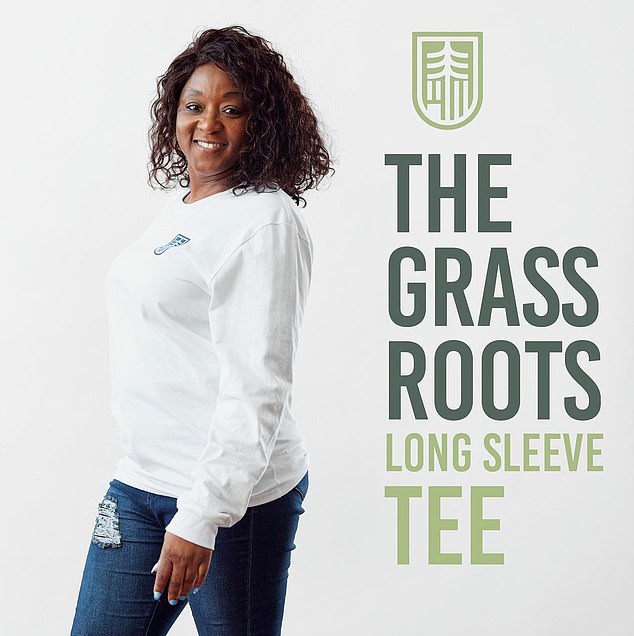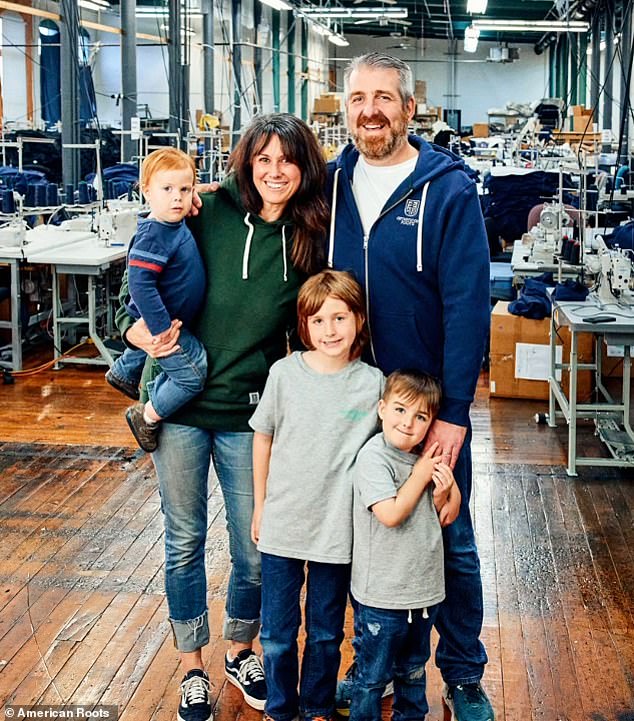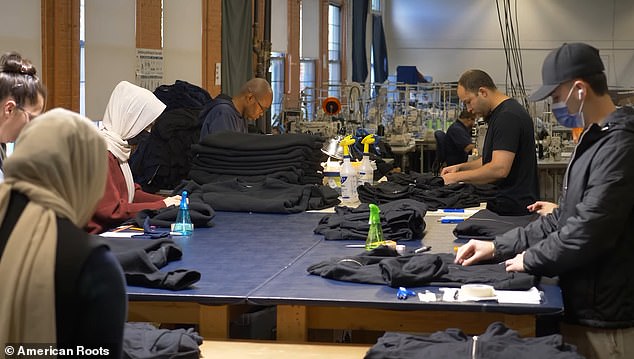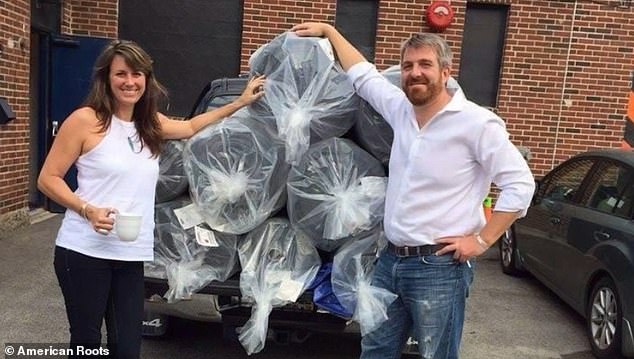Dyed-in-the-wool Americans! Maine couple’s clothing firm manufactures all its goods locally – and the materials it uses are domestically-produced too
A start-up clothing company in Maine is in the spotlight for sticking to its unyielding “Made in the USA” commitment in the age of globalization.
American rootsfounded by husband and wife team Ben and Whitney Waxman in 2013, is the subject of a new book out this week from author Rachel Slade, titled ‘Making it in America’.
Subtitled “The Almost Impossible Quest to Manufacture in the USA (And How It Got That Way),” the book documents the difficult challenges faced by American companies trying to keep production in the U.S. in lieu of cheaper labor in the US. found abroad.
Not only does American Roots source all its materials domestically, its factory in the town of Westbrook, Maine, is fully unionized at the insistence of its owners.
Ben, a former union organizer for the AFL-CIO, and his wife insisted from the beginning that their employees earn a living wage with vacation time and other benefits, Slade recently wrote in an article. New York Times guest essay.
Husband-and-wife team Ben and Whitney Waxman founded the clothing company American Roots in 2013 in an effort to revive Maine’s defunct textile industry

The company makes casual and outdoor clothing, including hoodies, fleeces and T-shirts
“Our company’s economic philosophy is ‘Profit over Greed,'” Ben told Slade. ‘We must make a profit, but that will never be at the expense of our employees, our values or our products.’
After more than a decade working for the AFL-CIO, the nation’s largest labor federation, Ben moved with Whitney back to Maine, where he grew up.
Maine was once a center of textile manufacturing, but the industry suffered a steady decline in the second half of the 20th century and was virtually destroyed in the 1990s by free trade agreements, including NAFTA.
In fact, Ben’s own mother, Dory Waxman, had once owned a small woolen goods business until mills in Maine began to close and she could not purchase materials locally.
Against all odds, Ben and Whitney decided to do their part to revive Maine’s textile industry and co-founded American Roots.
“The idea was simple: create and sell American-made products to the growing number of people who value ethics, quality and American sourcing and manufacturing,” they recalled on their company website.
Finding and training workers was a major challenge, and with Dory’s help, the Waxmans organized a training program for seamstresses, now known as Common Threads of Maine.

Against all odds, Ben and Whitney decided to do their part to revive Maine’s textile industry and co-founded American Roots.

Many of the company’s employees are recent immigrants from countries including the Democratic Republic of Congo, Iraq and Angola

The Waxmans say finding American-made parts – including fabrics, zippers, drawstrings and buttons – is a constant challenge
The training program helped produce workers with the right skills and training for American Roots and other companies in Maine.
Many of the company’s employees are recent immigrants from the Democratic Republic of Congo, Iraq and Angola, among others, after fleeing dangerous conditions at home to build a new life in America.
Author Slade followed the Waxmans during the pandemic, when the company temporarily switched to producing masks and face shields to stay afloat.
The company tripled its annual revenue to $3.6 million in 2020 and posted revenue of $2 million in 2021 and $3 million in 2022, according to Slade.
The Waxmans say finding American-made components – including fabrics, zippers, drawstrings and buttons – is a constant challenge, but they remain committed to a 100 percent American product.
American Roots’ products reflect the higher costs of ethical labor practices and domestic sourcing, with the company’s zip-up hoodies retail for $108 to $120.
However, the company has seen strong demand for its products from consumers who believe in its mission and support a comeback in American manufacturing.
“American Roots continues to build a foundation rooted in our community, our family, our workforce, our products and our country,” the company’s website says.
‘We believe that growth and success come from nurturing these core values, and we give a piece of that to all our customers.’
